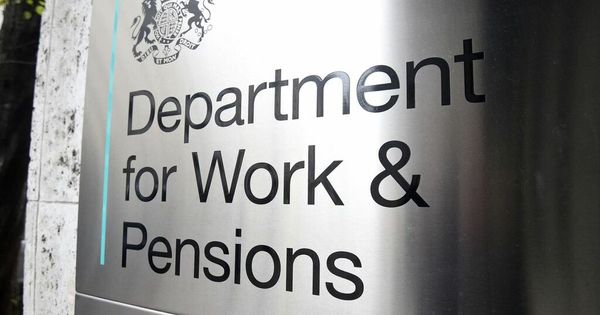The government has shared details of a £613m plan to tackle estimated losses of £4bn caused by a combination of errors and benefit fraud.
The plan, called 'Fighting Fraud in the Welfare System' will create a new team of 2,000 staff, whose job it will be to review more than two million existing Universal Credit claims. The new team will review the entitlements and circumstances of Universal Credit claims that the DWP deems to be at risk of being incorrect, including suspicious cases which entered the system during the height of the pandemic, reports the Daily Record.
It forms an attempt to save taxpayers' money from being lost to fraud and error over the next five years. The DWP plan reports that last year, there was an estimated £6.3bn of welfare fraud - up from £2.8bn from the year before.
READ MORE: Drivers warned over Highway Code motorway rule that could see you fined
Coupled with £2.1bn of error, the combined loss as a result of fraud and error was £8.4bn, 3.9% of benefit expenditure. The DWP’s definition of benefit fraud is when “someone obtains state benefit they are not entitled to or deliberately fails to report a change in their personal circumstances.”
The most common form of benefit fraud is when a person receives unemployment benefits while working. Another is when claimants state that they live alone, but are financially supported by a partner or spouse.
Failing to inform the state about a "change of circumstances", for example, that your partner is now living with you, or that you have moved house, or that a relative has died leaving you some money may also be seen as 'fraud by omission'.
Examples of benefit fraud
faking an illness or injury to get unemployment or disability benefits
failing to report income from a business or employment to make income seem lower than it actually is
living with someone who contributes to the household income without declaring that income to the authorities
falsifying accounts to make it seem like a person has less money than they say they do
In each circumstance, the DWP will need evidence that shows that someone is receiving a benefit (a Tax Credit or benefits payment, for example) that they would not ordinarily be entitled to. Fraud investigators have a wide range of powers which enable them to gather evidence in a number of ways, including surveillance, interviews, and document tracing.
Under the new proposals, these powers will widen to include executing warrants, search and seizure of evidence and even making arrests. However, people won’t know the exact details of an investigation against them until told about it afterwards - which may be in court if someone is charged with an offence.
The DWP acts on reports from the public, but it also has its own sophisticated means of detecting when fraudulent activity might be taking place - which means anyone receiving benefits from the DWP could be investigated at any time.
What happens during a DWP investigation?
If the DWP is going to start a formal investigation against you, they will notify you either in writing, by telephone, or email - this is typically done through the post. When you are notified, you will also be told whether you are to receive a visit from a Fraud Investigation Officer (FIO), or whether they require you to attend an interview.
In the early stages of an investigation, you may not be told that one is underway until the DWP has assessed whether there is good reason to formally investigate a potential case of fraud. Many tip-offs and reports turn out to be false, so the DWP wants to make sure that they do not waste their time on a pointless investigation.
As soon as there is enough evidence of potential fraud, the DWP will launch an official investigation and notify you. DWP investigators are allowed to gather many types of evidence against a potentially fraudulent claimant.
Most common types of evidence
inspector reports from surveillance activities
photographs or videos
audio recordings
correspondence
financial data, including bank statements
interviews with you or people you know
any evidence submitted by those who reported you
One common form of benefit fraud is falsely reporting income, or failure to report it altogether. If you are claiming unemployment benefits but are seen to attend a workplace, the DWP may talk to the owner or manager of that business to find out exactly why you are there, what work you are doing and how much you are being paid.
Investigators may also check your social media accounts and search your online profiles for pictures, location check-ins, and other evidence which may or may not be useful to them. Those who use social media a lot will leave a trail of their life and habits, often allowing investigators to piece together a picture of what that person’s life actually looks like.
If this is not consistent with the details of that person’s claim for benefits, that evidence may end up being used against them.
What if I am falsely reported to the DWP?
False reports of benefit fraud are common in the UK, with some studies indicating there are around 140,000 made each year.
Until the DWP determines that there is no case against you, there is little you can do. Co-operate as best as you can and remember that those found to have reported falsely through malicious reasons may end up being prosecuted.
If you are concerned about a current or future DWP investigation against you or someone you care about, seeking advice from a legal expert could help.










